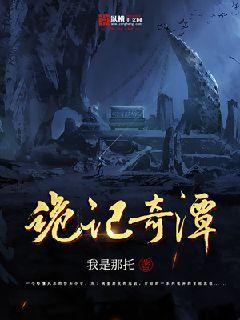
Certainly! Here's the structured article on "The Rise and Challenges of Cuban Basketball Players":
**Abstract:**
Cuban basketball has seen both triumphs and tribulations in recent decades. This article explores the journey of Cuban basketball players, highlighting their rise to prominence, the challenges they face within and beyond the sport, and the enduring impact on the national and international stages.
**1、Emergence of Talent**
Cuban basketball has witnessed a surge in talent over the years, marked by grassroots initiatives and national programs aimed at nurturing young athletes. The development of local leagues and academies has provided a fertile ground for budding players to hone their skills and showcase their potential on a larger stage.
Historically, Cuba has produced athletes renowned for their agility and strategic prowess on the court. This foundation has been crucial in shaping the current generation of players, who often emerge from humble beginnings but possess raw talent and a fierce determination to succeed.
In recent years, Cuban basketball federations have intensified efforts to identify and support promising prospects from a young age. Talented individuals are scouted and enrolled in specialized training programs, where they receive coaching and mentorship to refine their technical abilities and tactical understanding of the game.
As a result, Cuban basketball has seen a steady influx of skilled players who are not only competitive domestically but also capable of making significant contributions to international tournaments.
**2、Challenges on the Domestic Front**
Despite the talent pool, Cuban basketball faces formidable challenges within its domestic structure. Issues such as limited funding, outdated infrastructure, and administrative inefficiencies often hinder the sport's growth and competitiveness at the national level.
The Cuban Basketball Federation struggles with financial constraints that affect player development initiatives and infrastructure maintenance. Many training facilities are in need of modernization, and access to quality coaching and resources varies significantly across regions.
Furthermore, the sport faces competition from other popular activities within Cuban culture, diverting potential talent away from basketball. Baseball, for example, remains deeply ingrained in the national psyche and often attracts promising athletes who might otherwise pursue basketball.
These challenges underscore the need for sustained investment in grassroots programs and structural reforms aimed at revitalizing Cuban basketball from the grassroots up.
**3、International Competition and Opportunities**
On the international stage, Cuban basketball players have showcased their skills and resilience, despite facing adversities. Competing against well-funded and highly organized teams from other countries has provided Cuban athletes with invaluable experience and exposure to different styles of play.
Cuban players have historically excelled in regional tournaments such as the Central American and Caribbean Games, where they often dominate competition and secure medals for their country. These achievements not only bolster national pride but also serve as a testament to the talent and dedication of Cuban basketball players.
However, challenges such as limited access to international leagues and restrictive travel policies have restricted opportunities for Cuban athletes to compete at the highest levels abroad. Many promising players find themselves constrained by political and economic factors that limit their ability to pursue professional careers overseas.
Despite these challenges, Cuban basketball continues to produce athletes capable of competing on a global scale, demonstrating resilience and adaptability in the face of adversity.
**4、Future Prospects and Strategic Imperatives**
Looking ahead, the future of Cuban basketball hinges on strategic imperatives aimed at overcoming current challenges and capitalizing on emerging opportunities. Key initiatives include enhancing youth development programs, modernizing infrastructure, and fostering partnerships with international organizations to expand exposure and access for Cuban players.
Investments in coaching education and sports science will be crucial in nurturing the next generation of Cuban basketball stars, equipping them with the skills and knowledge needed to excel in an increasingly competitive global arena.
Furthermore, fostering a supportive ecosystem that encourages collaboration between public and private sectors can help mitigate financial constraints and promote sustainable growth within Cuban basketball.
By addressing these strategic imperatives, Cuban basketball can position itself for continued success and make significant strides towards reclaiming its position among the elite basketball nations of the world.
**Conclusion:**
In conclusion, Cuban basketball has navigated a complex landscape defined by both triumphs and challenges. From the emergence of talented players within a nurturing environment to the obstacles posed by domestic limitations and international competition, Cuban basketball continues to evolve and adapt. Moving forward, strategic investments and reforms will be pivotal in shaping the future trajectory of the sport, ensuring that Cuban athletes can compete and excel on the global stage.
Ultimately, the resilience and passion of Cuban basketball players serve as a testament to their enduring spirit and commitment to the sport, promising a future where Cuban basketball can once again shine brightly.
文章摘要:本文探讨了西班牙球员在团队合作中面临的挑战。首先分析了个人主义与团队精神之间的平衡问题,接着讨论了文化背景与价值观的差异对合作的影响。然后深入探讨了沟通与协调的挑战,以及如何在竞争激烈的体育环境中促进团队的协同。最后总结了如何通过领导力和集体目标实现团队合作的成功。
1、个人主义与团队精神的平衡
在竞技体育中,球员个人的技能和荣誉常常与团队合作形成对立。一方面,球员们渴望通过个人表现来获得认可和奖励;另一方面,团队的成功依赖于所有成员的协同努力。这种平衡问题常常导致团队内部的紧张和冲突。
个人主义在某些情况下可以激励球员发挥最佳水平,但过度强调个人成就可能削弱团队凝聚力和合作精神。因此,教练和领导者需要通过适当的激励机制和团队建设活动来促进这种平衡。
另一方面,团队精神的培养需要球员们能够放下个人利益,以整体利益为重。这对球员个人品质和团队文化的塑造提出了更高要求。
2、文化背景与价值观的差异
西班牙球员来自不同的地区和文化背景,这些背景在团队合作中可能会产生深远的影响。不同地区的球员可能具有不同的价值观和沟通方式,这会增加团队内部的理解难度和冲突潜力。
跨文化团队的成功需要建立开放和包容的文化氛围,鼓励成员分享和尊重彼此的观点。通过文化敏感性培训和多元化团队活动,可以有效地减少文化差异带来的团队合作障碍。
此外,领导者在多文化团队中的角色尤为关键,他们需要具备跨文化管理能力,引导团队成员超越文化差异,共同追求共同的目标。
3、沟通与协调的挑战
有效的沟通是团队合作成功的关键因素之一,而在竞技体育中,沟通的失误可能导致战术失败和团队内部的不和。语言障碍、沟通风格的差异以及个人沟通技能的不足都可能成为挑战。
为了克服这些挑战,团队需要投入时间和资源来改善沟通效果。这包括组织定期的沟通培训、制定清晰的沟通政策和建立开放的沟通渠道。
另外,协调团队成员的活动和决策也是一项复杂的任务。有效的协调需要领导者有强大的组织能力和决策能力,以确保团队在竞争中保持高效和统一。
4、领导力和集体目标的实现
领导力在促进团队合作中发挥着至关重要的作用。优秀的领导者能够激发团队成员的积极性和创造力,建立共享的愿景和集体目标。
通过设定明确的团队目标和角色分工,领导者可以帮助团队成员专注于共同的利益,而不是个人利益。此外,鼓励团队成员之间的互动和支持,也有助于增强团队的凝聚力和战斗力。
最终,成功的团队合作不仅仅依赖于个人技能的强弱,更需要团队整体的协同和领导者的智慧指引。
总结:
团队合作在西班牙球员中面临诸多挑战,但通过平衡个人主义与团队精神、尊重文化差异、优化沟通与协调,以及发挥领导力和集体目标的作用,可以有效地实现团队的协同效应,推动整个团队向着共同的成功目标前进。
这些挑战不仅是体育领域的,也是组织管理和领导力发展中的重要议题。
小马丁:职业生涯的崛起与挑战
本文将探讨小马丁在职业生涯中所经历的崛起与挑战。从他的早期开始,到如何应对行业变革,再到他的领导风格与团队协作方式,最后总结他职业生涯的关键成功因素。
1、早期起步
小马丁在行业中的初涉如何影响他后续的发展?他是如何通过学习与实践积累起宝贵的经验?在最初的职业生涯中,他面对了哪些最大的挑战?
随着时间的推移,他如何从这些挑战中汲取教训,逐步发展出自己的职业道路?这一阶段的成长对他未来的影响有何重要意义?
在他职业生涯的早期,他是如何平衡学习和应用,以及如何通过挑战和失败不断成长?
2、行业变革应对
随着行业技术与市场的快速变化,小马丁是如何调整自己的职业路径?他是如何在不断变化的行业环境中保持竞争力?
他采取了哪些策略和方法来应对行业变革的挑战?这些策略如何帮助他在职业生涯中保持稳定与成长?
他在这一过程中面对的最大挑战是什么?他是如何通过创新和适应性来克服这些挑战的?
3、领导风格与团队协作
作为领导者,小马丁的领导风格是怎样影响他的职业生涯的关键因素?他是如何建立和培养团队的协作精神?
他在团队管理中面对的主要挑战是什么?他是如何通过领导力和沟通技巧来解决这些挑战的?
他的领导风格如何与他的职业发展路径相互作用?他的团队管理方式如何帮助他在职业生涯中取得成功?
4、关键成功因素总结
综合小马丁职业生涯中的崛起与挑战,有哪些关键成功因素是他职业生涯中的转折点?
他是如何通过经验总结和持续学习来不断提升自己?这些因素如何影响他的决策和职业道路?
最终,小马丁在职业生涯中的成功背后,有哪些深刻的教训和启示?这些教训对其他职业人士有何借鉴意义?
总结:
小马丁通过早期起步的艰难经历和对行业变革的灵活应对,建立了独特的领导风格和团队协作方式。关键成功因素在于他的坚韧、学习能力和适应性。他的职业生涯不仅是个人成就的体现,也是职业发展道路上的一个典范。